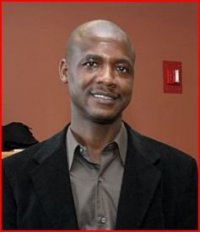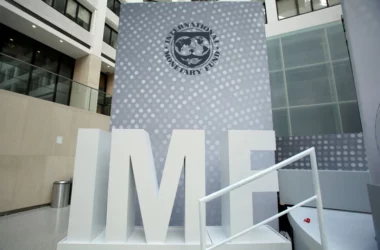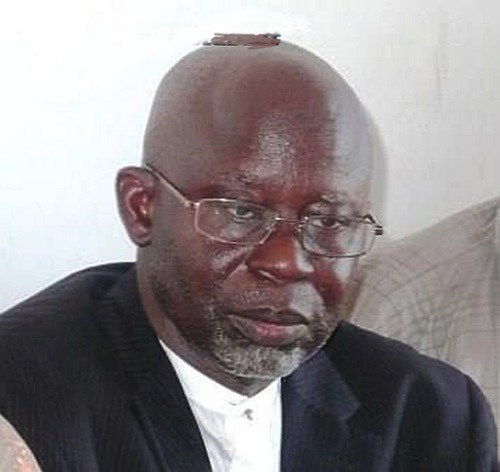
I am neither a member of the United Democratic Party nor spokesperson for Ousainou Darboe professing that Lawyer Ousainou Darboe was the draftsman of the 1997 Constitution. This write -up of mine was first published June 8, 2018 detailing all 11 members of the Constitutional Review Commission of the Armed Forces Provisional Ruling Council (AFPRC) that presided over the Second Republican 1997 Constitution.
“Re-posting: Reminiscence: Members of the 1995 of the Constitutional Review Commission Of The AFPRC Govt.
By Alagi Yorro Jallow
The Constitutional Review Commission (CRC) of the then ruling Armed Forces Provisional Ruling Council (A FPRC) was established in March1995 under Decree No.33 of 1995.
Its remit was to review the suspended; (abolished) 1970 constitution and recommend what changes should be made to into the new constitution (1997 Second republican constitution) to come into force after the return to civilian rule.
However, CRC had a much smaller membership Chaired by a Ghanaian High Court judge, Justice George Mensah Quaye, who had been seconded to the Gambia. Justice Quaye was assisted by, a British, American and Malawian lawyer, prepared a draft new constitution in 1995. Other members of CRC, included two Gambian female lawyers namely; Ms. Amina Coker; State Counsel Ms.H.C Roche(later) Hon. Justice Roche, as secretary; a Christian Cleric, Bishop Tilewa Johnson, of the Anglican Diocese, a Muslim Cleric from Banjul Independence Mosque Road Imam Makumba Jaye, a traditional Chief, Seyfo Dembo Santang Bojang of Brikama, Kombo Central and one representatives of civil society, educationist, Mr. Gabriel Roberts.
Since political activity was banned under Decree No.4, individuals, few members, including politicians, former diplomats, individual members of the of the Bar (individual lawyers) and supporters of the junta submitted proposals, Memoranda, and oral contribution. The CRC conducted open public hearings in Banjul.
CRC submitted its report to the AFPRC government in November 1995 (it had originally been requested to do so by July). However, its report was not published until March1996, and some of its key recommendations were then rejected by the AFPRC government. The most significant of these was that the president be at least 40 years of age (this would have ruled out Yahya Jammeh) and that a president could only serve for a maximum of two terms.
A national referendum on the draft constitution was held in August 1996, and there were no representatives by members of the former Parliament, the Gambia Press Union, Medical & Dental Council, Gambia Teachers Union, Gambia Workers Union, National Women’s Council or Youth Organization appointed to the Constitutional Review Commission”.













Additional information to Alagi Yorro Jallow’s clarifications about Lawyer Ousainou Darboe and ON THE GAMBIA CONSTITUTION 1997 FOR 2ND REPUBLIC!
Please take note of RELEVANT UDP LEADER’S STATEMENT ON THE GAMBIA CONSTITUTION 1997 DEVELOPMENT FROM ALLOCUTUS THAT LAWYER OUSAINOU DARBOE WAS NOT ALLOWED TO MAKE BEFORE CONVICTION ON 20TH JULY 2016
“My lady, during the military rule, it dawned on me that any government whether a dictatorship or a true democracy turns first to lawyers for whatever its wishes to accomplish. It is the lawyers that draft the most draconian legislations. It is also the lawyers that draft and draft legislation that catalyst economic growth and development with its attendant by products. It is also the lawyers who help put in place a constitution that may or may not establish an autocratic rule.
My Lady, the preamble to the 1997 Constitution states amongst other things that “we the people of The Gambia have accomplished a great and historic task. We have had our say on how we should be governed”. My Lady, I was part of that historic task and I have had a say in how we Gambians should be governed. I did so in this very court room wherein members of The Gambia Bar Association met to make recommendations to the Constitutional Review Commission on the new Constitution of The Gambia. I was then Vice President of The Gambia Bar Association. I was also a part of a small group of lawyers comprising Mr. O.M.E Sillah, Mr. P.C.O. Secka of blessed memory, Hon Justice R.C. Sock that submitted various recommendations to the Constitutional Review Commission.
Of interest to me is the independence of the judiciary. I saw then the threat to the independence of the judiciary. I believed that a provision such as Section 120 (3) of the Constitution, together with an Esso type of Judges will guarantee the absolute independence of the judiciary. I believe that with an independent judiciary no one will starve of justice. I believe that with an independent judiciary, democracy will be constitutionalised.”
Role Lawyer Fafa Mbai played especially the Decrees during AFPRC transition period should be on record and Halifa Sallah ‘s contributions, setting the records straight and for posterity.